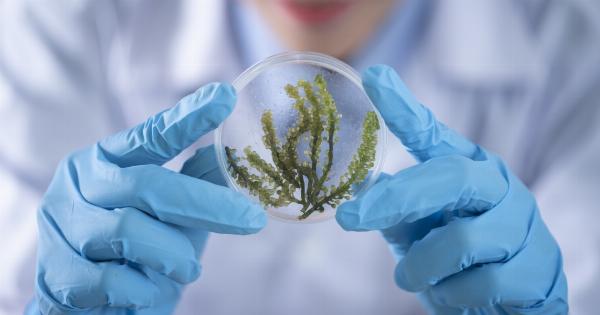Enterococcus is a type of bacteria that commonly resides in our intestines and genital tracts. While most strains of Enterococcus are harmless, some can cause infections that lead to serious health complications.
These infections can be acquired in hospitals, nursing homes, or through contact with contaminated food or water. It is important to take necessary precautions to protect yourself from Enterococcus infections, especially if you have a weakened immune system or are undergoing medical procedures that increase your risk of infection.
1. Maintain Proper Hand Hygiene
One of the most effective ways to prevent the spread of Enterococcus infections is by practicing good hand hygiene. Make it a habit to wash your hands regularly with soap and water, especially before eating or after using the restroom.
If soap and water are not available, use an alcohol-based hand sanitizer with at least 60% alcohol content.
2. Practice Safe Food Handling
Enterococcus can contaminate food, leading to foodborne illnesses. To minimize the risk of infection, follow these guidelines:.
– Wash your hands thoroughly before handling food.
– Cook food thoroughly, especially animal products like meat, poultry, and eggs.
– Avoid cross-contamination by keeping raw and cooked foods separate.
– Refrigerate perishable foods promptly.
– Avoid consuming unpasteurized dairy products.
3. Maintain a Clean Environment
Regularly clean and disinfect surfaces in your home and workplace to reduce the possibility of Enterococcus contamination. Pay special attention to commonly touched areas such as doorknobs, light switches, and countertops.
Use an effective disinfectant that is capable of killing bacteria, including Enterococcus.
4. Take Precautions in Healthcare Settings
If you are visiting a hospital or nursing home, take additional precautions to protect yourself from Enterococcus infections:.
– Always wash your hands before and after entering a patient’s room.
– Follow any isolation precautions as instructed by healthcare staff.
– If you have an open wound or surgical site, keep it clean and covered as directed by your healthcare provider.
– Avoid unnecessary antibiotic use, as it can contribute to antibiotic resistance and increase the risk of Enterococcus infections.
5. Be Careful with Catheters and Medical Devices
If you require the use of urinary catheters or other medical devices, make sure they are inserted and maintained properly.
Invasive procedures increase the risk of Enterococcus infections, so it’s crucial to follow the healthcare provider’s instructions for care and maintenance of these devices.
6. Promote a Strong Immune System
A strong immune system is better equipped to fight off infections, including those caused by Enterococcus. Take care of your immune health by adopting healthy lifestyle habits:.
– Eat a balanced diet with plenty of fruits and vegetables.
– Get regular exercise to strengthen your immune system.
– Get enough sleep to allow your body to repair and rejuvenate.
– Manage stress levels effectively.
7. Be Cautious during Travel
If you are planning to travel, particularly to regions with poor sanitation or limited healthcare facilities, take extra precautions to avoid Enterococcus infections:.
– Drink only bottled or boiled water.
– Avoid consuming raw or undercooked food.
– Use alcohol-based hand sanitizers frequently, especially when handwashing facilities are inadequate.
8. Educate Yourself and Others
Stay informed about Enterococcus infections and spread awareness among your friends, family, and community. Knowledge is a powerful tool in preventing the spread of infections. By educating others, you can help create a safer environment.
9. Follow Antibiotic Guidelines
Excessive and improper use of antibiotics can contribute to the emergence of antibiotic-resistant strains of Enterococcus.
Follow your healthcare provider’s instructions when prescribed antibiotics, and never use them without professional guidance or for non-bacterial infections.
10. Seek Medical Attention
If you develop symptoms such as fever, chills, pain, or any unusual signs of infection, seek medical attention promptly. Early diagnosis and treatment are essential in preventing complications associated with Enterococcus infections.






























